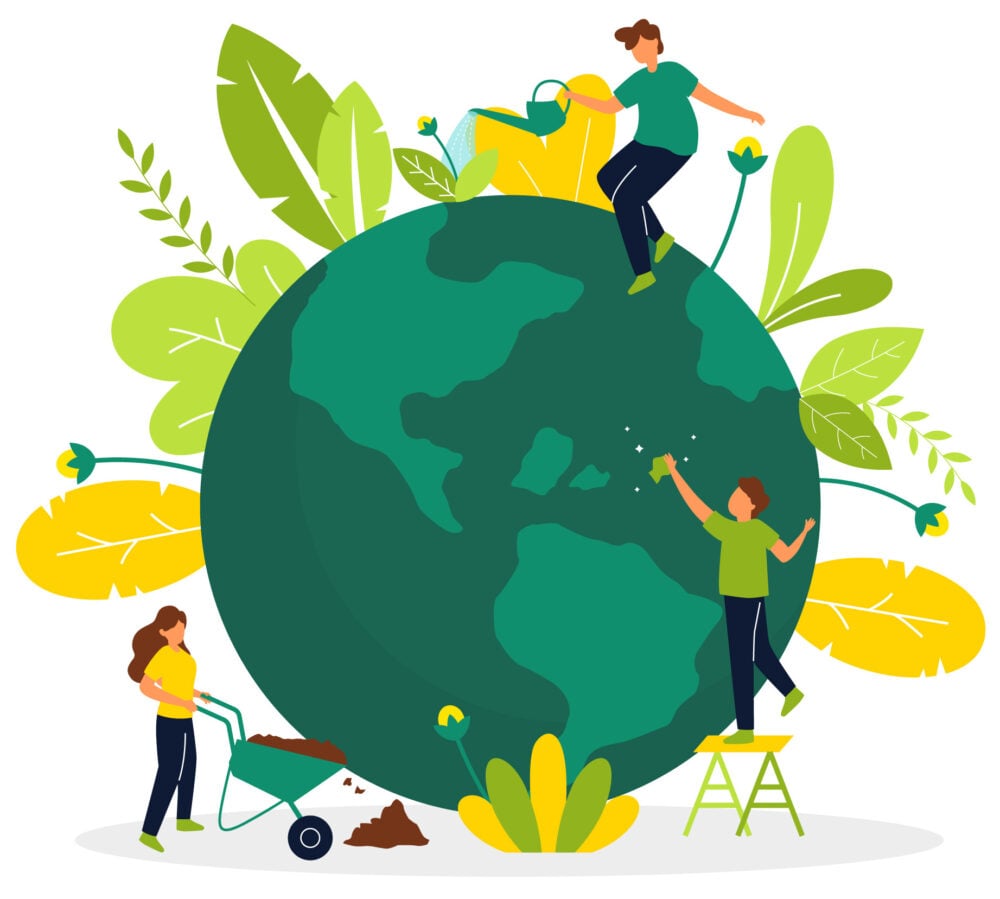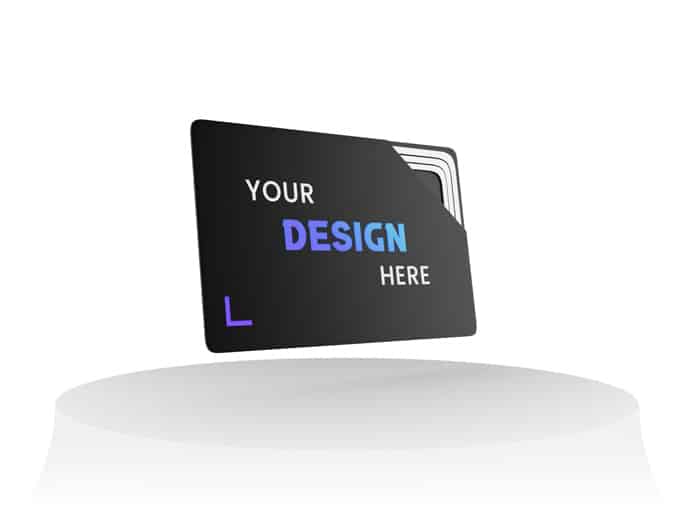
Paper business cards: an underestimated environmental impact

It’s essential, even necessary, to rethink our consumption habits, especially in the business world! In the dock is the paper business card. Even if it seems harmless, its production and use have a considerable impact on the environment.
1. Wasteful paper business cards
Millions of paper business cards are printed and distributed around the world, yet a large proportion often end up in the garbage can…
- Paper-intensive: card production requires large quantities of wood, contributing to deforestation.
- Water-intensive: paper production is one of the most resource-intensive industrial processes.
- CO₂ emissions: printing and transporting business cards contribute to greenhouse gas emissions.
2. A short life cycle and problematic waste management
Paper business cards often have a short lifespan. On average, 88% of cards distributed are thrown away within a week of being given out.
- Non-recycled waste: many of these cards are printed on plastic-coated paper or with non-biodegradable inks, making them difficult to recycle.
- Mass reprints: each time information changes, new cards have to be printed.
3. A sustainable digital alternative
Faced with this situation, a digital solution seems to be an ecological and more efficient alternative. That’s why VKARD offers connected business cards, which considerably reduce environmental impact:
- With a VKARD, instantly share your contact details via a QR Code or NFC to a digital link.
- You can update your information in real time, and avoid having to print new cards every time you make a change.
- Reduce waste: no more need to produce, distribute and dispose of paper cards.
- You’re committed to greener communication, in line with sustainable development objectives.
Conclusion
Using paper business cards is a well-established habit, but it’s also a polluting one! It’s time to switch to more sustainable solutions like digital business cards. With tools like VKARD, it’s possible to preserve the environment while improving your professional communication. Opting for digital means taking a step towards a more responsible and connected future.
Written by Diane Tilloy
The digital business card is a real ally for professionals wishing to promote their business effectively and instantly. In the...Lire la suite
VKARD is an innovative and effective solution to help all professionals stand out from the crowd and reinforce their brand...Lire la suite
If you prepare properly for a job interview, you'll have every chance of winning over the recruiter and getting the...Lire la suite
LinkedIn is a world-renowned business platform, and for good reason! Thanks to its many networking options, LinkedIn is the tool...Lire la suite
Find out how Leexi AI optimizes the management of videoconferences and business calls, saving time and improving efficiency.
In the professional sphere, it's vital to know how to convey certain strong values in order to stand out and...Lire la suite
Mastering the art of conversation is a real asset! By mastering the subtle art of conversation, you'll be able to...Lire la suite
Are you taking part in a trade event and want to do everything you can to make a good impression?...Lire la suite
CRM (Customer Relationship Management) represents a genuine corporate strategy for managing business contacts. This popular tool for professionals is in...Lire la suite
At a time when the professional world is in a perpetual state of competition, we might wonder what place altruism,...Lire la suite















